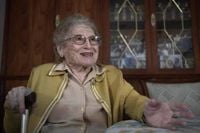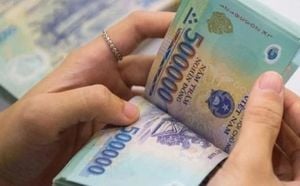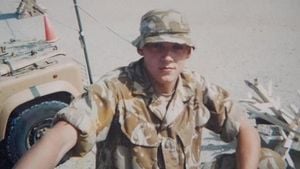Rosa Tarlovsky de Roisinblit, who spent nearly half a century searching for truth and justice in the wake of Argentina’s darkest years, has died at the age of 106. Her passing on Saturday, September 6, 2025, marked the end of an era for the Grandmothers of Plaza de Mayo, the organization she helped lead and inspire for decades. Both her family and a nation of human rights defenders paid tribute, remembering her not only as a tireless activist but as a symbol of resilience and hope in the face of unspeakable loss.
Born in 1919 in Moises Ville, a small town founded by Jewish immigrants fleeing persecution in Russia, Rosa’s life was shaped by the hardships and dreams of those who sought refuge in Argentina. She became an obstetrician, eventually leading the maternity ward at a hospital in Rosario, Santa Fe. In 1949, she moved to Buenos Aires, and two years later, she married Benjamín Roisinblit, beginning a family whose fate would become entwined with the country’s history.
But nothing could have prepared Rosa for the agony that would come with Argentina’s military coup in 1976. The junta, determined to stamp out dissent, unleashed a campaign of terror that became known as the “Dirty War.” According to BBC News, an estimated 30,000 people were killed or disappeared, and around 500 babies were stolen from detained activists and handed to regime sympathizers. Rosa’s own daughter, Patricia Julia Roisinblit, was eight months pregnant when she was abducted in 1978 along with her partner, José Manuel Pérez Rojo, and their 15-month-old daughter, Mariana Eva. The family was taken to ESMA, the largest clandestine detention center in Buenos Aires.
Patricia was kept alive just long enough to give birth in the basement of the detention center. After that, she and José were never seen again. Mariana, the toddler, was eventually returned to Rosa, who raised her. The newborn boy, however, vanished—given to an air force intelligence officer and raised under a false identity as Guillermo Francisco Gómez. For years, Rosa had no idea what had become of her grandson.
It was the disappearance of her daughter and the theft of her grandchild that propelled Rosa into activism. In 1978, she joined the Grandmothers of Plaza de Mayo, a group formed by women like her, desperate to find the children stolen by the dictatorship. She served as treasurer for six years, then as vice president from 1989 to 2022, before being named honorary president. Her commitment was unwavering. As she once told AFP, “This wound never heals… But to say I’m stopping? No, I’ll never stop.”
The search for her grandson finally came to an end in 2000, when the Grandmothers of Plaza de Mayo received reports that a military couple might have appropriated the missing baby. Mariana, now an adult, approached Guillermo at his place of work and spoke to him about the suspicions. He, too, had doubts about his identity. A DNA test, conducted by the renowned geneticist Mary-Claire King, confirmed what they had begun to suspect: Guillermo was indeed the son of Patricia and José, and Rosa’s long-lost grandson.
“I was not here just to look for him, but to look for all those who remain missing,” Rosa once said in an interview, as reported by the Buenos Aires Herald. She never gave up hope of learning the fate of Patricia and José, whose bodies were never found. Nor did she stop fighting for the hundreds of other children who remained unaccounted for. The Grandmothers of Plaza de Mayo estimate that 140 babies have now been reunited with their biological families, but hundreds are still missing.
In 2016, Rosa, then 96, sat in the courtroom with Guillermo and Mariana as justice was finally served. Guillermo Gómez, the air force officer who had raised her grandson under a false identity, was sentenced to life in prison for the abduction. Teodora Jofre, his wife, received a three-year sentence. Later that year, two men—a former air force chief and an ex-intelligence officer—were each sentenced to 25 years for the abduction and torture of Patricia and José. These convictions were among hundreds of prosecutions for human rights abuses committed during the dictatorship.
Rosa’s work was never just about her own family. She became a beacon for others, her story a testament to persistence in the face of despair. Human rights organizations, including Comisión Provincial por la Memoria and the Center for Legal and Social Studies (CELS), expressed “deep sorrow” at her passing and praised her decades of dedication. Former human rights secretariat Horacio Pietragalla described her as “a tireless fighter.” Socialist deputies Esteban Paulón and Mónica Fein even filed a bill to pay homage to her in the next Congress session, recognizing her national significance.
Her death was publicly announced by her granddaughter, Mariana Eva Pérez, who posted a heartfelt message on X (formerly Twitter): “For me, you are eternal,” she wrote, sharing photographs of the two together. Guillermo, the grandson Rosa spent so many years searching for, also posted: “My Grandma has passed away, and beyond the sadness I feel, it comforts me to think that after 46 years she is reunited with my mom and with her great love, my grandfather Benjamín.”
Rosa’s funeral was held on Sunday morning, September 7, 2025. Family, friends, and fellow activists gathered to say goodbye before she was laid to rest at the Jewish community cemetery in La Tablada, Buenos Aires province. The Grandmothers of Plaza de Mayo issued a statement recalling her legacy: “We only have words of appreciation for her dedication, solidarity and love with which she looked for grandchildren, right until the end.”
Her legacy is not only personal but national. Guillermo, now a human rights lawyer, continues her work with the Grandmothers of Plaza de Mayo. As the organization noted, Rosa’s contributions extended far beyond her own family. Together with her granddaughter Mariana, she played a crucial role in the genetic developments that have enabled so many stolen children to be identified and reunited with their relatives.
Rosa Tarlovsky de Roisinblit’s story is one of tragedy, but also of unwavering hope. She embodied the fight for justice and the refusal to forget. As Argentina continues to grapple with the legacy of its past, her example endures—a reminder that even the deepest wounds can inspire a lifetime of courage and compassion.




